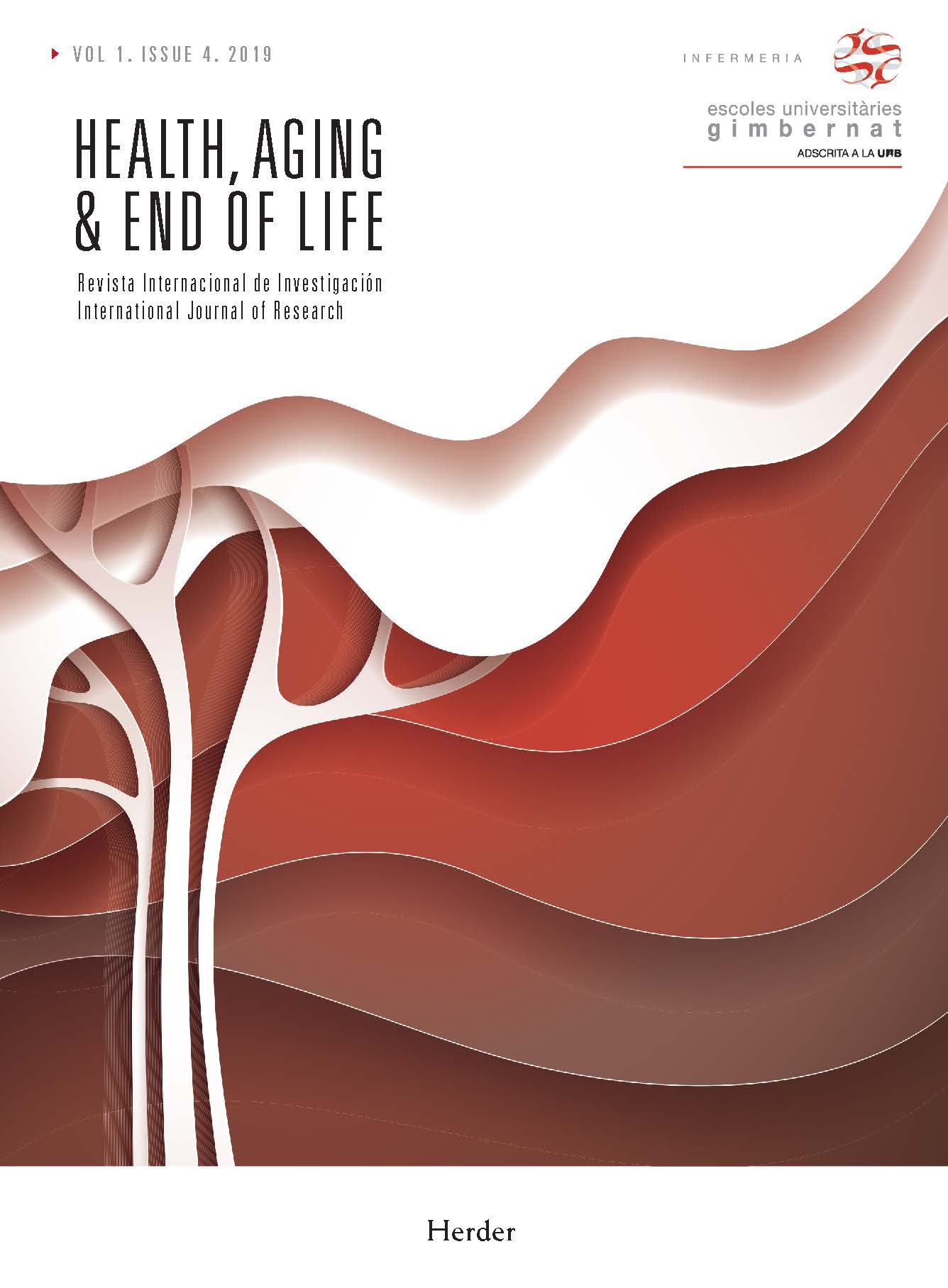Abstract
Introduction: Renal pathology is a challenge for public health with important social and economic implications. The aging of the hemodialysis population makes it necessary to review how care has been raised so far in the context of kidney disease, taking into account that older people need dialysis appropriate to their needs that differ from the general population.
Methodology: In order to explore the person-centered care and not the dialysis technique itself, a qualitative approach has been designed from the Grounded Theory, Strauss-Corbin method. The objective of this study has been to understand the situation experienced by older people on dialysis in the midst of technology and chronicity and what meanings care has for them.
Sample: Seven elderly people on dialysis in the Chronic Hemodialysis and Peritoneal Dialysis program of the University General Hospital of Valencia.
Data collection technique: Interviews recorded in audio. Chronological tran-scription and narrative analysis of the text.
Results: Older people on dialysis face a very hard situation where the ability to endure and resist the day-to-day life of dialysis will be very relevant for them and their families. The time they invest in the technique is experienced as a loss, fear The fact that vascular access presents problems is a source of anxiety and the de¬mand to be taken care of in an integral way is a claim that appears in the narratives in an evident way. Conclusions. People feel dialysis as a set of losses, but they also recognize their gain. The ability to actively endure and resist older people on dialysis is an attitude to face suffering, this attitude promotes hope in a present that allows them to live with dignity and always accompanied by family, friends and professionals attentive to their needs. Older people on dialysis open the debate about age and transplants, but above all a way of perceiving care as a value.
References
Bonilla, M. y López, A. (2016). Ejemplificación del proceso metodológico de la teoría fundamentada. Cinta Moebio 57: 305-315 doi: 10.4067/S0717-554X2016000300006)
Charmaz, K. (2013). La teoría fundamentada en el siglo XXI: Aplicaciones para promover estudios sobre la justicia social, pp. 270-325. En: N. K. Denzin; Y. S. Lincoln (comps.). Estrategias de investigación cualitativa. Vol. III. Buenos Aires: Gedisa.
Delgado, C. (2012). La teoría fundamentada: decisión entre perspectivas. Bloomington: Author House.
Domingo,T. (2019). Hacia una antropología hermenéutica del sufrimiento. Fenomenología de la acción (y del sufrir), ética de la resistencia y hermenéutica de la parsimonia. (Una presentación del sufrimiento de Paul Ricoeur). Revista de Filosofía Moral y Política. ISEGORIA. Nº 60, enero-junio, 2019, 75-91. ISSN:1130-2097.
Goto, N., vanLoon, I., Morpey, M., Verhaar, M., Willems, H., Emmelot- Vonk, M., Bots, M., Boereboom, F. y Hamaker, M. (2019). Geriatric Assessment in Elderly Patients with End-Stage Kidney Disease. Nephron. 2019; 141 (1): 41-48. doi: 10.1159/000494222. Epub 2018 Nov 1.
Kamijo, Y., Fujimoto, S. y Ishibashi, Y. (2018). Total Renal Care Approach for Patients with End-Stage Renal Disease. Contrib Nefhrologycal. 196: 78-82. doi: 10.1159/000485703. Epub 2018 Jul 24.
Lovell, S., Walker, R.J., Schollum, J.B., Marshall, M.R., McNoe, B.M. y Derrett, S. (2017). To dialyse or delay: a qualitative study of older New Zealanders’ perceptions and experiences of decision-making, with stage 5 chronic kidney disease. BMJ Open, 7 (3), e014781. doi:10.1136/ bmjopen-2016-014781
Mora, J., Slon, M., Castaño, I., Izquierdo, D., Arteaga, J. y Martínez, N. (2017). Enfermedad renal crónica en el paciente anciano. Rev Esp Geriatr Gerontología, 52(3): 152-158.
Nilson, E. Patients’ experiences of initiating unplanned haemodialysis. Journal of Renal Care. 2019, Jul 17. doi: 10.1111/jorc.12282
O’Hare, A.M., Szarka, J., McFraland, L.V., Vig, E.K., Sudore, R.L., Crowley S., Reinke, L.F., Triverdi, R. y Taylor, J.S. (2018). Emotional impact of Illness and Care on Patientes with Advanced Kidney Disease. Clinical Journal American Nephrology, vol 6; 13 (7), 1022-1029. doi:10.2215/CJN.14261217
Sellarés, V.L. (2017). Nefrología al día. Capítulo 16. 335-353. Consultado online el 2 de mayo de 2019 en: http://www.revistanefrologia.com/
Silva, S.M., Braido, N.F., Ottaviani, A.C., Gesualdo, G.D., Zazzetta, M.S. y Orlandi, F.S. (2016). Social support of adults and elderly with chronic kidney disease on dialysis. Rev. Latino-Am. Enfermagem (8) 24: e2752. Recuperado en 15 de agosto de 2018: doi: http://dx.doi.org/10.1590/1518-8345.0411.2752
Strauss, A. y Corbin, J. (1990). Basics of Qualitative Research: Grounded Theory, procedures and techniques. Sage Publications. Newbury Parck.
Salehitali, S., Ahmadi, F., Hasanpour Dehkordi, A., Noorian, K., Fereidooni-Moghadam, M. y Zarea, K. (2018). Progressive exhaustion: A qualitative study on the experiences of Iranian family caregivers regarding patients undergoing hemodialysis. International Journal of Nursing Sciences, 5, 193-200.
Tonelli, M., Riella, M. (2014). Enfermedad renal crónica y el envejecimiento de la población adulta mayor. Nefrología, Diálisis y Trasplante, 34 (1), 1-7.
Tong, A, Cheung, K., Nair, S., Kurella Tamura, M., Craig, J. y Winkelmayer W., 2014 Thematic synthesis of qualitative studies on patient and caregiver perspectives on end-of-life care in CKD. American Journal Kidney Disease; 63(6): 913-27. doi: 10.1053/j.ajkd.2013.11.017. Epub 2014 Jan 7.

